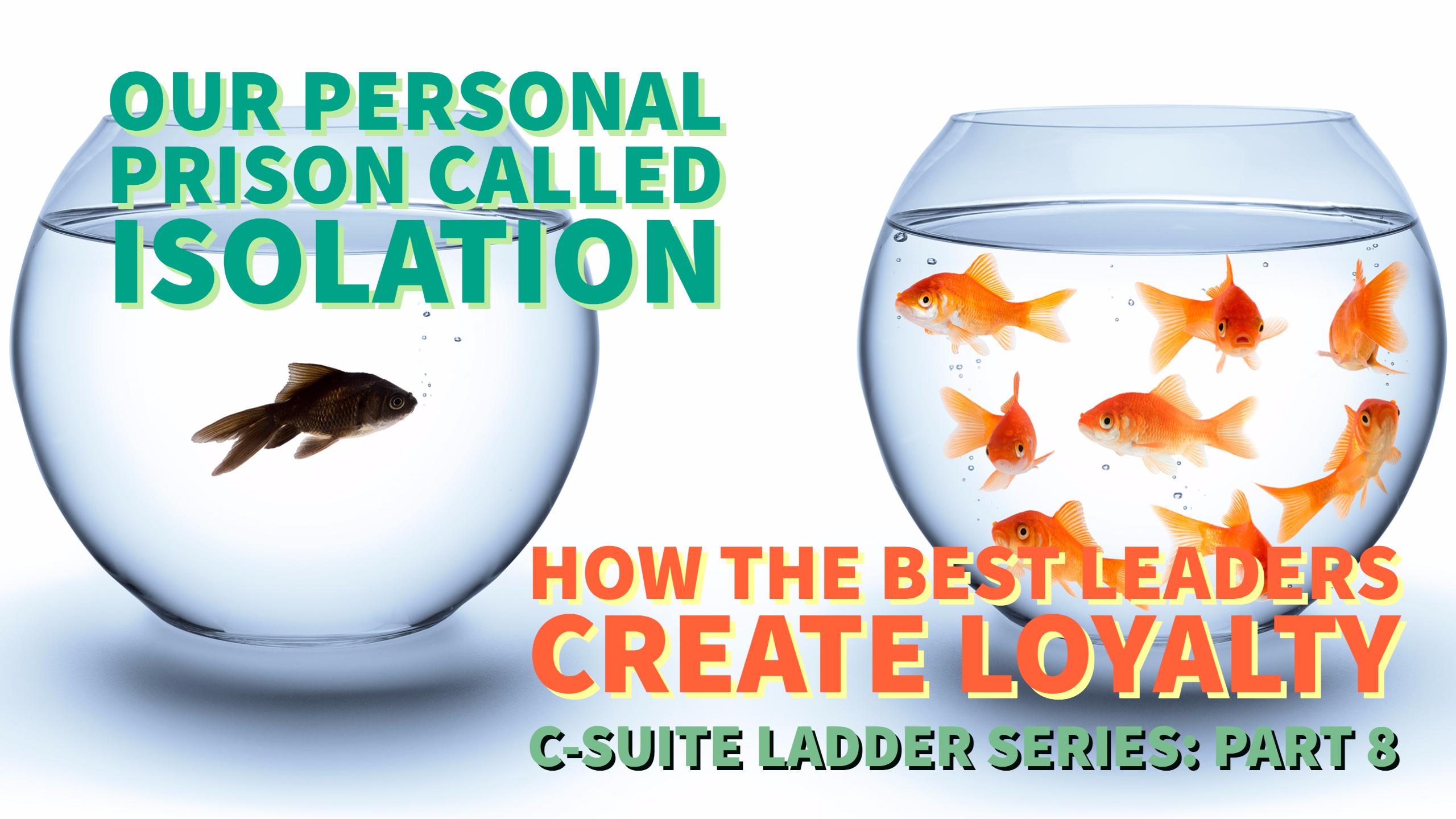 Rung Eight –
Rung Eight –
Do not isolate yourself from your employees, rather build strong relationships by listening to others, respond thoughtfully and offer suggestions that encourage collaboration.
We have all heard and seen this statement, “people are our most important asset”. How do we know our people are so important if we are not involved with what is going on in the workspace. Are they growing in skills that move the company forward in a competitive marketplace, and if not what are the strategies you are implementing to increase the skill set of your workforce?
What the C-Suite wants –
The C-Suite wants to know what those strategies are to retain quality employees and increase learning and contribution to the overall vision and direction of the company. They need to know that you are confronting the skills gaps and developing a culture of learning and contribution for the employees in the company. If we do not think strategically with our employees, 50% of our employees will be gone in 5 years. What are you doing in this extremely costly area of a company’s business? Speak up for what needs to be done with boldness and conviction. The C-Suite is looking for someone that knows and believes strongly in what they are doing and its impact on value and the bottom line.
The C-Suite wants better talent and they want you to show them an example of what you are doing to create a better talent pool in the company. If you are engaged with the employees, you are uniquely qualified to tell the truth about your findings with courage. They are looking for someone to give straight forward answers and it can and should come from you. As a business leader, you have listened to the employees and given thoughtful consideration on what is going on in the organization because you think strategically about the entire enterprise.
Michelle Smith, VP of Business Development for OC Tanner says, “If you are in HR and a significant contributor, you are the owner of the culture in an organization. You are the “connecting tissue” of the organization”. You have to be well connected to everything that is going on in the organization to reach this level, but it is essential if you are to gain a seat at the C-Suite table.
Analyze, Recommend and Communicate –
Be careful that you do not just data dump information. They want to hear what needs to be changed to provide speed to quality, actionable insight and decisions that will provide answers to the needs you have uncovered, and how it profits the company and the people.
As you mingle among the staff, you will find that Millennials will have good suggestions and must be considered. The C-Suite may need your help and support to communicate to these employees and connect on their level. Understanding how to communicate with every level is obviously important but the Millennials have a unique language of their own, as have all the generations. Don’t isolate yourself from these employees as it is the largest generation in the workforce today. They are a force to be listened to and you can provide that value to the C-Suite.
Your corporate brand is in your hands. If you company says “people are our most important asset”, does it communicate that message into the marketplace the same way it is written?
Takeaways –
Engaged employees impact your client’s satisfaction and client’s satisfaction impacts your corporate social status. You are the holder and manager of the culture.
As a strategic thinker who is well connected to the employee base, you are the “connecting tissue” that builds collaboration and partnership with all the members of the team.
Wall Street is beginning to base value of a company on its culture. How employees are treated, recognized and supported with both formal and informal programs. How you impact Wall Street will give you an important seat at the table with the C-Suite.
I love hearing from you. Email me your experience in creating loyalty among your employees.
 TRAVIS JONES CEO
TRAVIS JONES CEO
Travis has been an entrepreneur and business owner in Tulsa for over 30 years. He is a well-known community servant and is dedicated to providing world-class service for everyone we encounter.Travis is a certified Life Options Retirement Coach and is certified to facilitate and deliver the Manager As Coach Learning Series (MACLS) through CPI. He serves on the board of Career Partners International (CPI) and is an equity partner in CPI, offering a global reach with over 220 offices. Travis serves on the Elder Board at Tulsa Bible Church, on the board of New Life Ranch and is a proud member of Tulsa Executives Association (TEA) and is active with several other organizations serving the community and beyond.
Email: travis@cdpartnersinc.com




